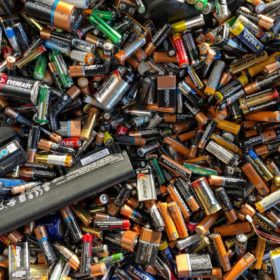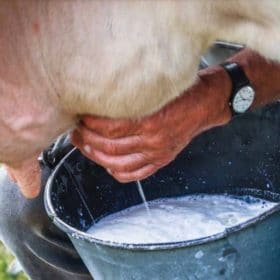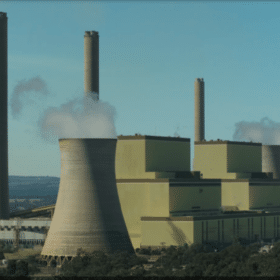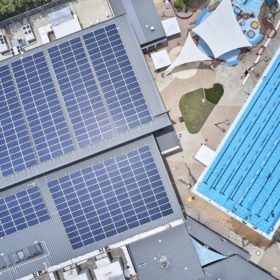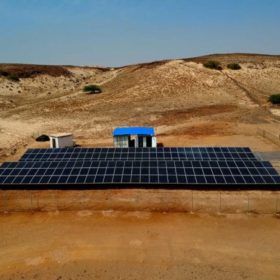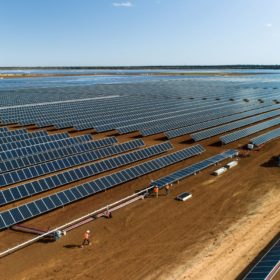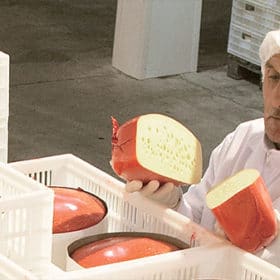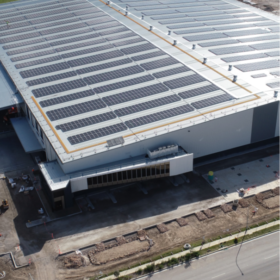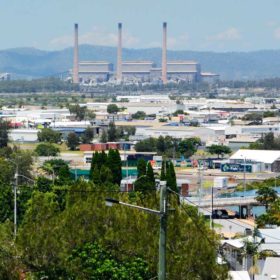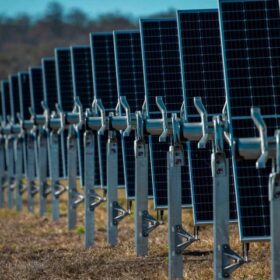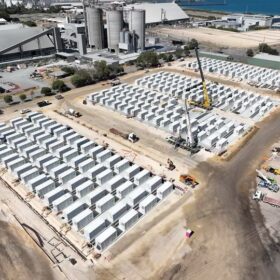$3.1 billion recycling opportunity emerges as batteries boom
Australia’s national science agency has identified a potential $3.1 billion industry that is there for the taking with the increasing penetration of renewables in grids nationwide sparking substantial growth in the battery energy storage sector.
Land of milk and honey, Hycel set to work on hydrogen opportunities for dairy industry
It has been said that it is no use crying over spilt milk, and similarly there is no use crying over emissions already spilt by the dairy industry, there is only to curb those emissions and Deakin University’s Hycel Technology Hub is looking to do that for the dairy industries in both Australia and Uruguay.
Outgoing AGL boss singled out by Greenpeace for company’s shockingly late embrace of coal
When Brett Redman, Chief Executive and Managing Director of Australia’s biggest energy generator and retailer, unexpectedly quit last month, the news promised intrigue. AGL, a giant in the Australian landscape, had recently announced it would split in two – a strange move which confused markets. Greenpeace today published an extensive report on the company, detailing how in the midst of global momentum away from fossil fuels in 2009, AGL actually divested from its renewable portfolio to turn toward coal, directed by Redman at the company helm.
Tweed Shire Council revs up solar installations
On New South Wales’s Northern Rivers the Tweed Shire Council has unanimously voted to push into the second phase of its pursuit of net zero emissions from its electricity usage by 2030. The move will see the Council’s solar capacity almost triple through 10 new solar installations.
The sum of the Leaders Summit on Climate
Let’s not give Australia’s Prime Minister any more space on the topic of climate change. Scott who? Fatih Birol, Executive Director of the International Energy Agency encapsulated the Summit and where we’re at coolly, concisely and cogently.
PV-powered desalination system for water-poor, sun-rich rural areas
Italian start-up Genius Watter has developed a solar desalination solution that is claimed to be particularly suitable for remote areas with no connection to grid electricity. The system is able to produce up to 1,000 cubic meters of potable water per day at an opex of €0.20 per cubic meter.
Coles signs two major agreements after becoming final supermarket to switch to 100% renewables
After recently joining the rest of Australia’s supermarket chains by pledging to be 100% powered by renewables by 2025, Coles today announced it had signed power purchasing agreements with both Engie and Neoen.
Australia’s top dairy processor signs 10-year renewable power purchasing deal
Australia’s largest dairy processor, Saputo Dairy Australia, has signed a 10 year power purchasing agreement with French-owned power company Engie to reduce its emissions through renewably sourced electricity.
CEFC loan enables industrial property developments with ‘potential to revolutionise energy use’
International developer Frasers Property Group, which owns Australian-based Frasers Property Australia, has secured a $300 million sustainability linked loan with $75 million provided by the Australian government. The loan will see innovative clean energy technologies installed two Australian industrial projects in New South Wales and Victoria.
The manufacturing multiplier of BZE’s Renewable Energy Industrial Precincts
Business synergies, employment opportunities, leadership in decarbonising world markets. BZE has the ear of the Prime Minister, and research to inspire a statement of intent for renewable-energy-powered, competitive Australian manufacturing.
